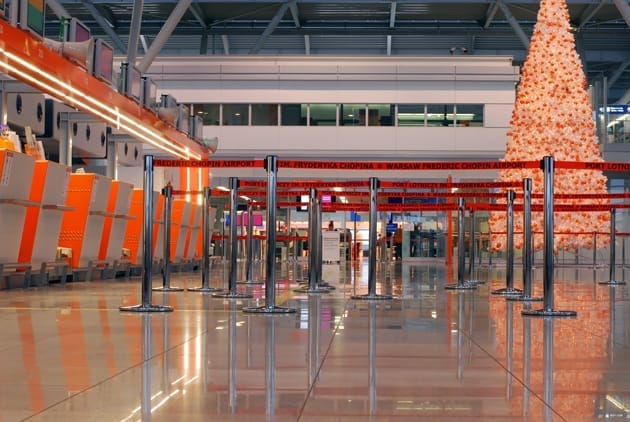The prospect of a government shutdown, particularly during the bustling holiday travel season, has raised concerns among various stakeholders, including travelers, airline operators, and federal agencies. A government shutdown occurs when Congress fails to pass funding for federal agencies, resulting in a partial or complete cessation of operations for non-essential government employees. Given the critical nature of efficient air travel during the holidays, understanding the implications of such a shutdown is essential for all involved.
One of the most immediate impacts of a government shutdown would likely be felt by the Transportation Security Administration (TSA), the agency responsible for security at airports throughout the United States. In the event of a shutdown, TSA agents classified as non-essential could be furloughed, leading to staffing shortages at key airport security checkpoints. This reduction in personnel could result in significant delays and longer wait times for travelers, creating a ripple effect in air travel schedules. During the holiday season, which is typically marked by high passenger volumes, such delays could lead to frustration and complications for those traveling to be with family and friends.
Moreover, flight delays caused by TSA staffing issues could compound with weather-related delays that often occur during the winter months. Airports generally manage a significantly increased passenger load during the holidays, and a surge in travelers coinciding with a shortage of security personnel could exacerbate the risk of congestion. Consequently, airlines may have to adjust their flight schedules to accommodate longer wait times at security, further complicating travel plans.
In addition to potential delays at security checkpoints, a government shutdown could hinder the Federal Aviation Administration (FAA), responsible for air traffic control and overall aviation safety. Should funding be unavailable during a shutdown, the FAA may have to implement similar furlough policies for non-essential personnel. The Authority, working with reduced staffing levels, could experience delays in air traffic control services, maintenance of air traffic systems, and other crucial safety operations.
Critical FAA services facilitate the orderly flow of air traffic and ensure safety in operations. With high volumes of air traffic expected during holiday travel periods, reduced staffing could lead to slower response times and, in some instances, flight rerouting. This could contribute to further flight delays and cancellations, putting additional strain on an already burdened passenger base.
Several federal agencies have protocols in place to manage essential services during a government shutdown, including TSA and FAA operations. These protocols typically allow for some level of continuity of service, but the specifics can vary depending on the length of the shutdown and its categorization as either partial or full. Essential personnel are expected to work without pay during the shutdown, while others are not permitted to perform their duties. However, the uncertainty surrounding agency operations in a shutdown could create confusion and hesitance among travelers and airlines alike.
Travelers may also face challenges regarding the timely processing of customs and border protection services, which are vital for international travel. If government shutdowns affect staffing levels at customs and border control, travelers may encounter longer wait times when entering or exiting the country. This, too, could disrupt flight schedules and delay connecting flights, compounding the stress associated with holiday travel.
Airlines must also prepare for potential impacts of a government shutdown on travel. Without the assurance of timely security screenings and air traffic control services, airlines could opt to reduce flights or adjust schedules throughout the holiday season. Passengers booking holiday travel should remain cognizant of potential systemic delays and cautiously monitor updates from airlines and federal agencies.
Travelers are encouraged to maintain open communication with their airlines in anticipation of a government shutdown, especially regarding flight status and policies related to delays or cancellations. Proactive measures can help mitigate the uncertainty of air travel during this time and reduce potential disruption. Most airlines provide timely notifications and flexibility regarding changes to travel plans as the situation unfolds.
In preparation for the holidays, airports and airlines will also be proactive in communicating to passengers how a government shutdown may impact operations. This could include efforts to streamline processes and maintain a robust customer service presence at airports to help manage traveler expectations and navigate changes in travel logistics.
While the holiday season is a time for joy and celebration, a government shutdown could introduce significant challenges to air travel. Key agencies such as the TSA and FAA play critical roles in ensuring safe and efficient travel, and reduced staffing levels could create a cascade of effects that impact the entire aviation ecosystem. As policymakers navigate budgetary issues, travelers should remain informed about the status of government operations and how they may affect their holiday plans.
As the holiday season approaches, awareness of these intricacies surrounding potential government shutdowns may prove essential for travelers seeking to make informed decisions regarding their travel arrangements. Although agencies have plans to mitigate these circumstances, the complex interplay of staffing shortages, security screening challenges, and potential delays can be a determining factor in creating a seamless travel experience during this critical time of year.



